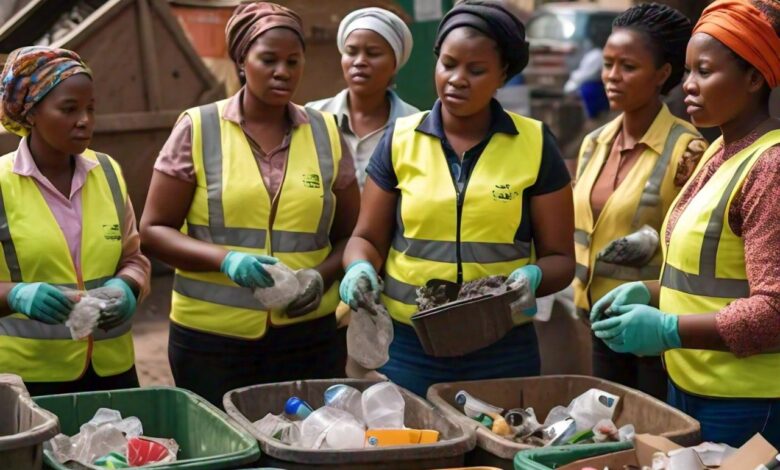Waste Management in Zimbabwe’s Cities: Where are we now?

Waste management in Zimbabwe is an increasingly pressing issue in recent years, particularly in urban areas. As the country grapples with economic challenges and rapid urbanisation, effective waste disposal strategies have become crucial. This is for the maintenance of public health and environmental sustainability. This article explores the current state of waste management in Zimbabwe’s cities, highlighting both the significant challenges and potential solutions.
Current State of Waste Management in Zimbabwe
Zimbabwe’s capital city, Harare, faces severe challenges in managing its municipal solid waste. According to a report by the Zimbabwe Environmental Law Association (ZELA), the city generates approximately 1,200 tons of waste daily. Of this, only about 40% is properly disposed of through official channels 2. Therefore, this leaves a substantial portion of the waste uncollected and often littering streets and open spaces.
Furthermore, in Bulawayo, another major urban centre, the situation is equally dire. The city’s waste management system has been described as “overwhelmed” due to inadequate infrastructure and resources. Residents often resort to informal dumping methods, leading to environmental hazards and public health concerns 3.
Challenges Facing Waste Management in Zimbabwe
Moreover, there are several factors that contribute to the difficulties in implementing effective waste management systems in Zimbabwean cities. Firstly, there is a limit on financial resources. Here, municipalities struggle to allocate sufficient funds for modern waste collection and disposal facilities. Secondly, the aging infrastructure is a huge threat. Many existing waste management facilities are old and in need of replacement or upgrading. Thirdly, there is lack of public awareness. Some residents do not understand the importance of proper waste segregation and disposal practices.
Also, the rapid population growth can be a cause of concern. Urban centres are experiencing high rates of migration, putting pressure on already strained waste management systems. Additionally, climate change impacts waste collection. Extreme weather events can disrupt waste collection services and increase the risk of environmental pollution.
Potential Solutions for Improving Waste Management in Zimbabwe
Despite these challenges, various initiatives are underway to address the waste management crisis in Zimbabwe’s cities. Firstly, private sector involvement goes a long way. Several private companies have entered the waste management market, offering specialised services such as recycling and composting. Secondly, community-based projects are vital. Here, local organisations are promoting door-to-door waste collection and education programs to raise awareness among residents.
Thirdly, the introduction of smart bin systems and mobile apps is improving efficiency in waste collection and monitoring. Also, collaborations between government agencies and private entities are being explored to enhance resource allocation and expertise sharing. Moreover, initiatives aimed at increasing the rate of material recovery and reducing landfill waste are gaining traction. The government is leading initiatives focusing on educating citizens about proper waste disposal practices and the benefits of recycling.
Additionally, plans are underway to construct new waste treatment facilities and upgrade existing ones to meet international standards. Finally, there are efforts to promote sustainable consumption patterns and reduce waste generation at the source.
International Comparisons and Lessons Learned
While Zimbabwe’s waste management challenges are unique, lessons can be learned from successful models in other countries.
South Africa, for instance, has implemented a comprehensive National Waste Management Strategy that emphasises extended producer responsibility and waste reduction targets. This approach could potentially be adapted to the Zimbabwe’s context.
Also, Kenya’s success in implementing a nationwide ban on single-use plastics serves as an example of how policy changes can significantly impact waste management outcomes.
Conclusion
Finally, improving waste management in Zimbabwe’s cities requires a multifaceted approach. This involves government policies, community engagement, technological innovation and private sector participation. While challenges remain significant, the ongoing efforts towards better waste management offer hope for a cleaner, healthier environment in Zimbabwe’s urban areas.
As the country continues to navigate its economic and social challenges, prioritising waste management will be crucial for long-term sustainability and development. By learning from both local successes and international best practices, Zimbabwe can work towards creating more efficient and environmentally conscious waste management systems in its cities.




